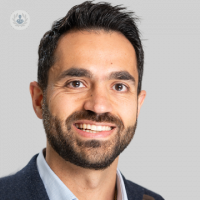Advances in gastrointestinal endoscopy
Written in association with:Current scientific and technological advances enable us to explore and examine the inner workings of the body, making it possible to visualise, diagnose and treat conditions in areas that were, until recently, inaccessible in the digestive system and the bile duct. This is done during a gastrointestinal endoscopy procedure. In his latest online article, renowned consultant gastroenterologist Dr Sarmed Sami explains some of the new perspectives on this procedure.

New possibilities
For a long time it has been possible to examine the stomach, the large intestine and part of the small intestine. Now, with the increasing medical sub-specialisation and the use of new endoscopes with state-of-the-art technology, we are able to explore the pathways that connect the intestine with the liver and the pancreas, and diagnose and treat conditions that previously required surgery.
Endoscopic capsule
For the areas of the intestine where direct endoscopy cannot reach there is the endoscopic capsule, a technologically avant-garde ally that is ingested as if it were a pill. It transmits images of the inside of our digestive apparatus to a computer without discomfort to the patient. The endoscope enables the collection of samples, removal of polyps and mucosal lesions, treatment of bleeding with bands, injection of medications and laser therapy, detection and extirpation of pre-malignant lesions (which may evolve to cancerous), and the implant of radiotherapy devices and stents to treat and prevent blockages.
The bigger picture
These new techniques are not limited to the interior of the digestive system. From the inside of the body and through the walls of the gastrointestinal tract, echo-endoscopy can see organs and lesions that are difficult to assess from the outside and now it is possible to reach them to get samples or to administer treatments. The future, however, lies in the early detection of premalignant lesions through specialised consultations of hereditary familial cancer, making it possible to give approximate estimates of the lifetime risks of certain cancers.
Dr Sarmed Sami is a leading consultant gastroenterologist based in London. If you would like to book a consultation with Dr Sami you can do so today via his Top Doctors profile.


